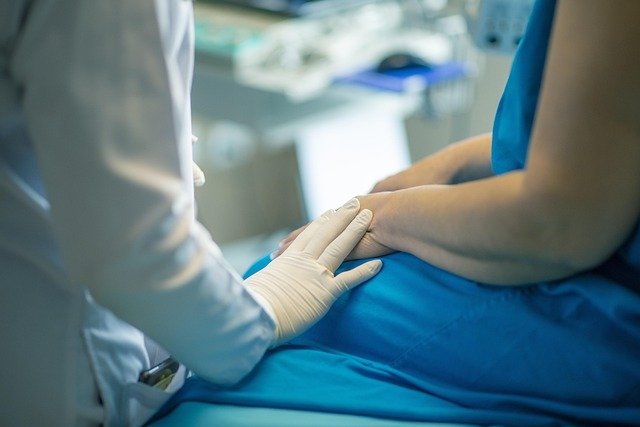Rhinoplasty: Understanding Nose Surgery in Ireland
Rhinoplasty, commonly known as a nose job, is a surgical procedure that reshapes or reconstructs the nose. This popular cosmetic surgery can enhance facial harmony, improve breathing function, or address structural abnormalities. In Ireland, rhinoplasty has gained significant attention as people seek to refine their appearance or correct nasal issues. This article delves into the world of rhinoplasty, exploring its benefits, procedures, and considerations for those contemplating this transformative surgery.

What Are the Benefits of Undergoing Rhinoplasty?
The benefits of rhinoplasty extend beyond mere aesthetics. For many patients, the surgery can significantly boost self-confidence and improve overall quality of life. By creating a more balanced and proportionate facial appearance, rhinoplasty can enhance a person’s self-image and social interactions. Additionally, for those suffering from breathing problems due to a deviated septum or other structural abnormalities, rhinoplasty can provide much-needed relief and improved respiratory function. The surgery can also correct birth defects or repair damage caused by injuries, offering both cosmetic and functional improvements.
How to Choose a Qualified Rhinoplasty Surgeon in Ireland?
Selecting the right surgeon is crucial for a successful rhinoplasty experience. In Ireland, prospective patients should look for board-certified plastic surgeons with specific expertise in facial plastic surgery, particularly rhinoplasty. It’s essential to research the surgeon’s qualifications, experience, and track record of successful procedures. Look for before-and-after photos of previous patients and read reviews or testimonials. Schedule consultations with multiple surgeons to discuss your goals, assess their communication style, and determine if you feel comfortable with their approach. Don’t hesitate to ask about their surgical techniques, potential risks, and expected outcomes.
What is the Recovery Process After Rhinoplasty?
The recovery process following rhinoplasty requires patience and careful adherence to post-operative instructions. Immediately after surgery, patients can expect some swelling, bruising, and discomfort around the nose and eyes. A splint or cast may be applied to protect and support the new nasal structure. Most patients can return to work or school within one to two weeks, but strenuous activities should be avoided for several weeks. Swelling gradually subsides over the course of several months, with final results becoming apparent after about a year. It’s crucial to follow the surgeon’s guidelines for sleeping, bathing, and caring for the surgical site to ensure optimal healing and results.
Are There Any Risks or Complications Associated with Rhinoplasty?
As with any surgical procedure, rhinoplasty carries certain risks and potential complications. These may include infection, bleeding, adverse reactions to anesthesia, or unsatisfactory aesthetic results. In some cases, patients may experience difficulty breathing, changes in skin sensation, or persistent pain. There’s also a small risk of needing revision surgery if the initial results are not satisfactory or if complications arise. It’s essential to discuss these risks thoroughly with your surgeon and understand how they can be minimized through proper planning, surgical technique, and post-operative care.
What Are the Typical Costs of Rhinoplasty in Ireland?
The cost of rhinoplasty in Ireland can vary significantly depending on several factors, including the surgeon’s expertise, the complexity of the procedure, and the location of the clinic. While it’s important to note that prices may change over time, we can provide a general overview of the typical costs associated with rhinoplasty in Ireland.
| Provider Type | Average Cost Range (EUR) | Notes |
|---|---|---|
| Private Clinics | 6,000 - 12,000 | Varies based on procedure complexity |
| Hospital-Based | 7,000 - 15,000 | May include additional facility fees |
| Specialist Surgeons | 8,000 - 20,000 | Higher fees for renowned experts |
Prices, rates, or cost estimates mentioned in this article are based on the latest available information but may change over time. Independent research is advised before making financial decisions.
It’s important to note that these costs typically cover the surgical fee, anesthesia, facility charges, and follow-up appointments. However, additional expenses such as pre-operative tests, medications, and any necessary revisions may not be included. Some clinics may offer financing options or payment plans to help manage the cost of the procedure. When considering rhinoplasty, it’s crucial to prioritize the surgeon’s qualifications and experience over cost alone, as the results will have a long-lasting impact on your appearance and well-being.
Rhinoplasty is a complex and personalized surgical procedure that can dramatically improve both the appearance and function of the nose. For those considering this transformative surgery in Ireland, it’s essential to approach the decision with thorough research, realistic expectations, and a clear understanding of the process, risks, and potential outcomes. By choosing a qualified surgeon and following proper pre- and post-operative care, patients can achieve the desired improvements to their nose, enhancing their overall facial harmony and quality of life.






